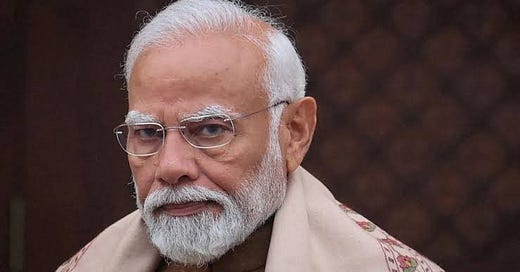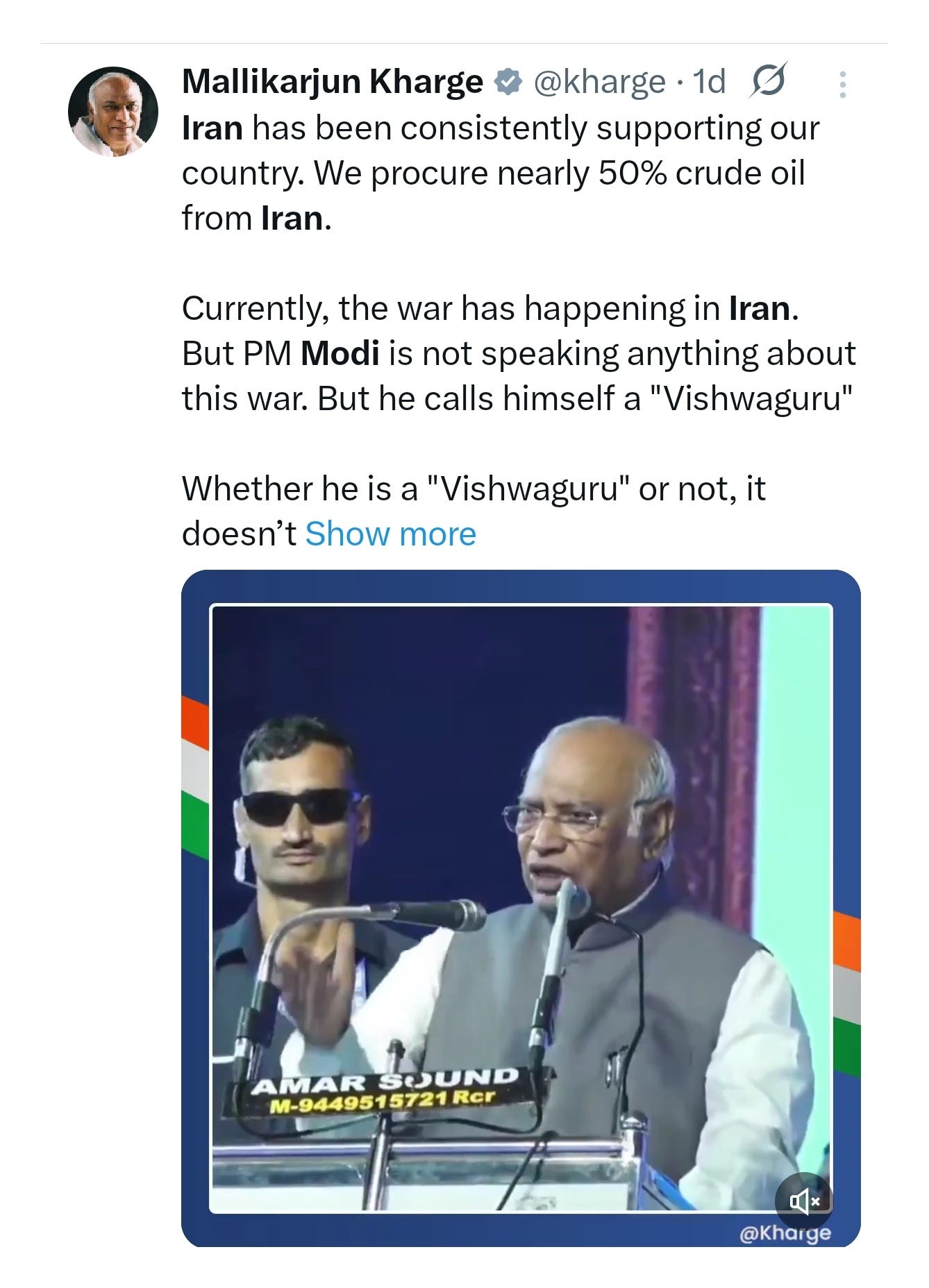In the early hours of June 22, the United States launched airstrikes on three Iranian nuclear facilities, dramatically escalating tensions in an already volatile region. The response from world leaders was swift and pointed. Many condemned the strikes outright, calling them a dangerous provocation that could ignite a broader conflict. But in India, the government’s response was strikingly muted.
Prime Minister Narendra Modi spoke with Iran’s newly elected President, Masoud Pezeshkian, expressing “deep concern” and urging “immediate de-escalation.” Not once did he criticize or even name the United States as the aggressor. The statement was diplomatic, vague, and carefully worded to avoid upsetting Washington.
This silence has not gone unnoticed. Opposition leaders, including Congress MP Jairam Ramesh, have openly questioned the government’s reluctance to take a firm stand. Ramesh reiterated the importance of dialogue and diplomacy, but he also made it clear that a sovereign country like India cannot afford to ignore such blatant acts of aggression, especially from a powerful Western nation with a long history of military intervention in the region.
Modi’s restrained reaction is not an isolated incident. Over the years, his foreign policy has consistently shown a growing alignment with Western powers, particularly the United States. Whether it's strategic cooperation through the Quad, joint military exercises, or increased defense deals, India under Modi has been drawing closer to Washington, often at the expense of its long-standing policy of non-alignment.
Supporters argue that this is a sign of India’s growing influence and maturity on the world stage. But critics are beginning to see it differently. They say Modi’s government has become too eager to please the West, too willing to play the role of a regional counterweight to China in exchange for investment, arms, and political legitimacy. In this view, India is not asserting itself as an independent power but is being shaped, and in some ways used, by a Western geopolitical agenda.
This perception is especially troubling for a country that once led the Non-Aligned Movement and took pride in its ability to speak independently in international affairs. Modi’s decision not to condemn the U.S. unprovoked strikes on Iran is an indication he has picked a side.
India has long prided itself on its ability to balance relationships across the geopolitical spectrum, maintaining ties with Russia, the United States, Iran, and others. It is this very balance that allowed India to speak with credibility in forums like the Non-Aligned Movement and to act as a bridge between East and West. But that balance appears to be fading. And with each crisis, India’s silence grows louder.
The Prime Minister’s response to the Iran strikes may seem like just one instance of diplomatic caution. But it reflects a deeper and growing concern, that under Modi, India’s foreign policy is being reoriented away from greater independence, and toward greater alignment with a Western-led world order. That may suit certain global ambitions. But it risks reducing India’s voice on the international stage to one of quiet compliance, especially when it matters most.
100% reader supported.
If you think my voice should be heard louder then PLEASE support by becoming a PAID SUBSCRIBER. I’m here for your raw, straight, and dedicated analyses. Your support is appreciated. Thank you.
buymeacoffee.com/ggtv






I think it is more diplomatic. India wants to adopt the Swiss model of neutrality. These aren’t India’s wars. Also, Iran has a long history of attacking Indians, even during friendly sports matches they won’t give Indian competitors water. They also side with Pakistan. If they support Pakistan, India has no need to stick its neck out for those who fund her enemies.